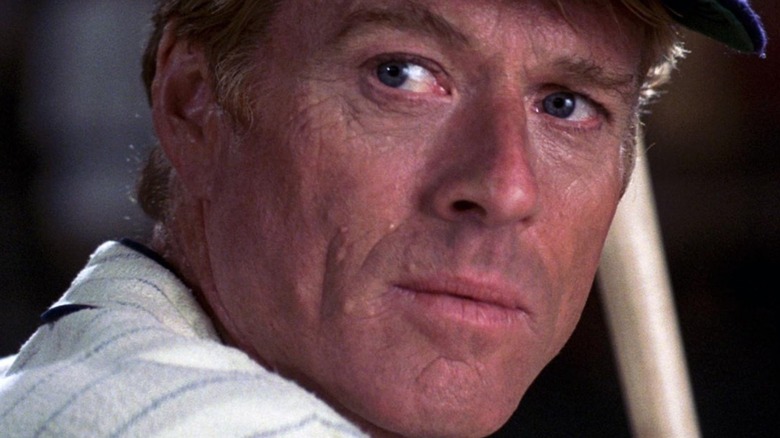
There's a reason why we are a nation of baseball movies, and why films about luging are comparatively difficult to come by. Baseball is meant to unspool slowly, reel by reel; the bats swing swiftly, the pitches slap the glove at startling velocity, and the throw to second will be over and done with before you've had a chance to glance up from your $12 beer. But these moments are brief explosions of sound and speed. Much of the baseball experience involves watching, and waiting, and allowing the story to unfold. It is a sport for a drawn-out saga, not for binging 30 minutes at a time.
You will never find a group of baseball fans who will agree on the proper order for 14 of the best films about the sport. It may even be difficult to get them to agree on which movies should make the list to begin with. But such are the riches of baseball cinema, so sit back, grab your peanuts and cracker jacks, and enjoy some of the finest movies ever made about America's national pastime.
For The Love Of The Game
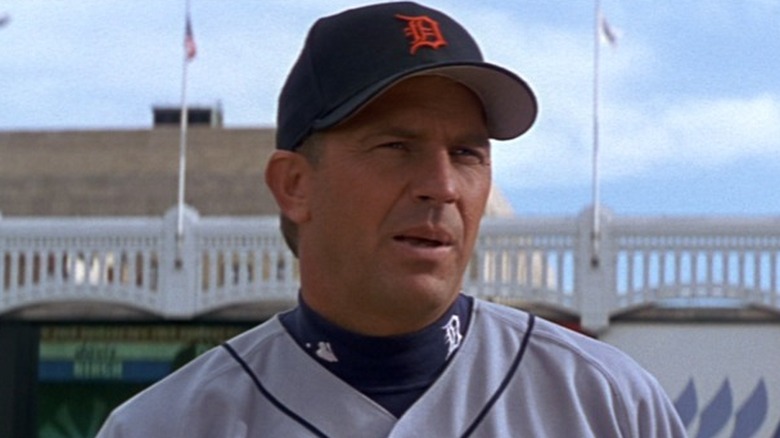
America's favorite baseball movie involving rotary saw accidents, this 1999 Kevin Costner drama attempts to shoehorn in an epic love story when baseball itself already offers all the possible romance a single movie could need. No, you drag this one into the queue to hear legendary announcer Vin Scully say that Costner's aging pitcher is "pitching against time ... to push the sun back up in the sky and give us one more day of summer."
What's frustrating about "For the Love of the Game" is that threads of greatness are present: the creative narrative frame of a single game, elements of a father-son relationship, the unusual focus on a fading star rather than a rising one, and an emphasis on just how much effort the entire team must expend when a pitcher pulls off a perfect game. Chop off half the movie, and you have a spectacular story. That rotary saw is never around when you actually need it.
The Natural
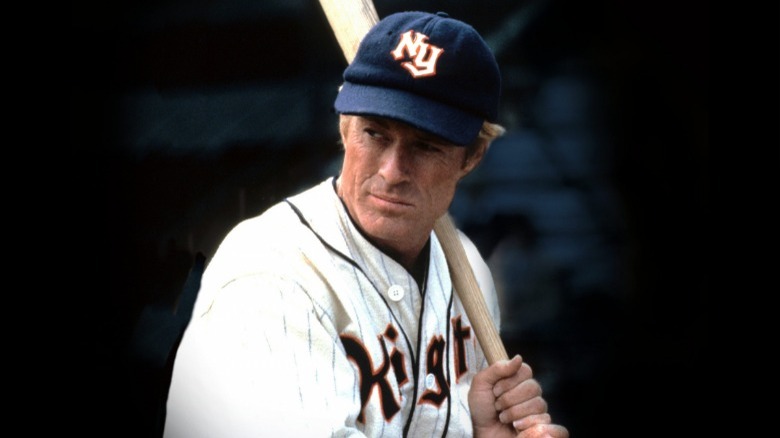
Many fans think baseball has supernatural qualities, and we find confirmation in this bit of absolute fiction. A more traditionally constructed movie than "For the Love of the Game," "The Natural" is considered one of Robert Redford's finest works. It follows Roy Hobbs' career through the early to mid-20th century, and if you're fond of magic bats, suspiciously timed lightning strikes, and players who die from crashing through the outfield wall, "The Natural" is for you.
At the heart of "The Natural" are Roy Hobbs' fable-hero qualities. This dude literally smashes the cover off the baseball. He doesn't just hit a home run; he knocks out the stadium lights. This is how modern Americans regard our gods. They are endowed with mythical powers and magical abilities. They play while they bleed and they play fully honest. Roy Hobbs is in the same league as Paul Bunyan and John Henry — after all, those tropes had to start somewhere.
The Sandlot
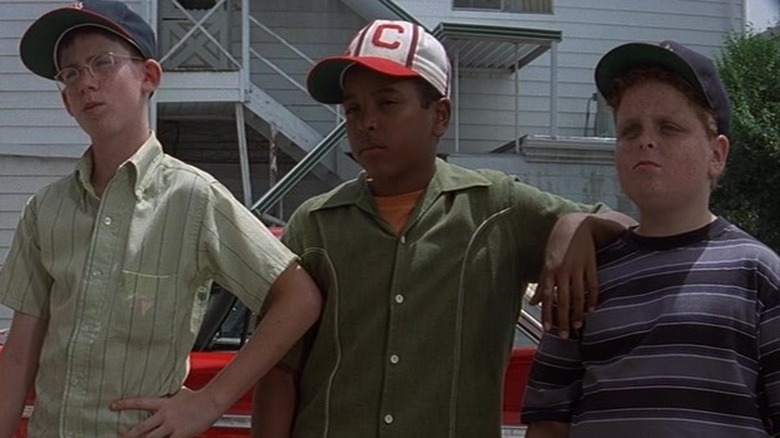
This is the baseball movie that's not, at its heart, about baseball. "The Sandlot" is a celebration of childhood and the cresting point between juvenility and adolescence, when, if you're lucky, scary neighborhood dogs are your main source of worry. It's a film that functions well for every generation: Millennials and under get to see what it was like to wander more than 15 feet from the front yard, while everyone else gets to remember life in the time of analog. It was a less civilized, more disorganized time.
"The Sandlot" hinges on the importance of understanding and celebrating the importance of what came before. As the group of boys plays a night game illuminated by Fourth of July fireworks, we as viewers know that the John F. Kennedy and Martin Luther King assassinations are just a few months away, and that the innocent era depicted in the film wasn't so innocent. But every era has a right to its own nostalgia, and we can all find at least a little of our own here.
The Bad News Bears
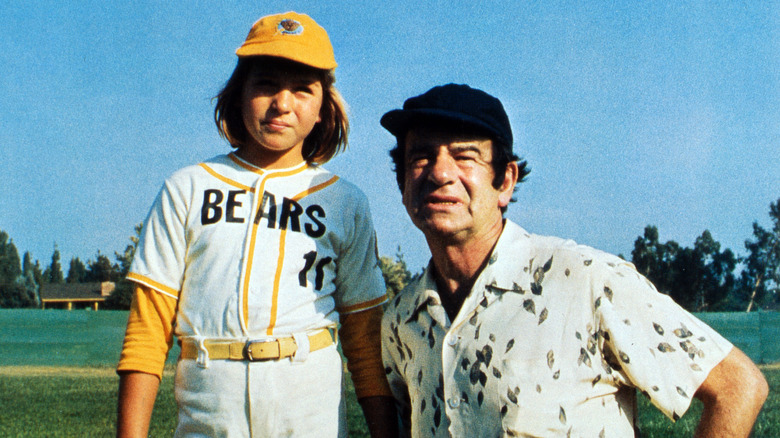
There was quite possibly never a time when Walter Matthau didn't specialize in being perpetually disgruntled, and he's in righteously Constant Mad Mode here. The bowl-cut precursor of "The Mighty Ducks" doesn't even let this trope machine of a team win — and that is its saving grace.
This movie could never be made in 2022, and that is good news. Entire scenes of "The Bad News Bears" are wall-to-wall hate crimes. What was released as a feel-good comedy in 1976 is now utterly inappropriate for children, adults, and pretty much everybody else. Racial and homophobic epithets? They're all here! Adults smoking around kids? You got it! Kids smoking too? Sure! Don't miss the drunk driving and Grandpa Matthau hurling a beer at Tatum O'Neil!
But the thrust of the film is pushback against a scrubbed down, Instagram-perfect, winner culture, arguing that a W in the books isn't necessarily the most important part of the day. After Matthau begins to take tournament advancement too seriously, he undoes it all by putting the team's least athletic players into the lineup when it matters most. So, they lose, and they're fine with that. They take themselves on their own terms. Perhaps this Carter-era movie, despite all its ugliness, has something nice to say.
The Pride Of The Yankees
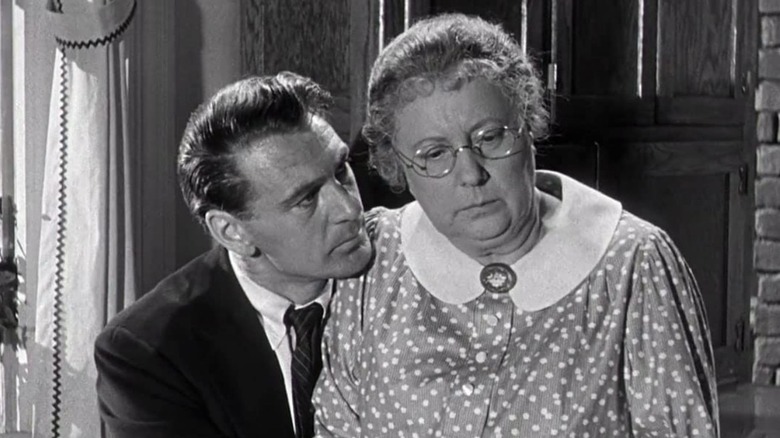
Released in 1942, just after the tragic death of its subject, "The Pride of the Yankees" is what happens when a culture attempts to cram immense respect for a real person through the Hollywood machine. Gary Cooper plays a 45-year-old college freshman whose nightmare mother carps at his new wife. He plays baseball and dies. Also, there's a complete ballroom dance number for absolutely no reason. It shouldn't work, but somehow it does.
Affection for the main character overwhelms the movie itself. Lou Gehrig's real story was far more poignant and interesting than what's depicted in the film, including the actual text of his famous "luckiest man" speech. Yet, this movie spends more time on his wife and mother arguing about wallpaper than it does on the enormous scope of Gehrig's tremendous accomplishments.
Contrast this film with "The Bad News Bears"; the '70s movie is entirely forward with its most cringetastic elements, while "The Pride of the Yankees" is, on its surface, entirely wholesome. However, this movie features precisely five Black people, among them a shoe shiner and a harassed train porter. But, in a deeply sad way, that's the point — no one heading up the film seemed to think this was a problem.
Artistic touches such as the long shot of Cooper's figure fading into the shadows after his final game serve as poetic images that celebrate not only Gehrig, but the sport itself. "The Pride of the Yankees" places Gehrig's life in the context of the devastating war the world has just entered, and it's clear the nation is desperate for some uplift.
42
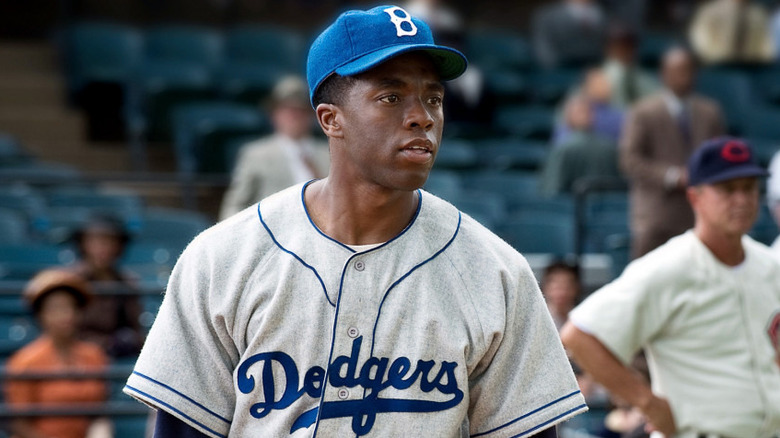
Jackie Robinson broke baseball's color barrier five years after the release of "The Pride of the Yankees." Baseball being baseball, however, that event meant significantly more than the simple entry of a name on a lineup. His appearance as a Dodger in April of 1947 was a cultural watershed. The man who was spit on, spiked, and subjected to every possible social humiliation became the first person whose number was retired across an entire American sport.
This film was hampered by the decidedly uncomfortable issue of depicting bald racism in a nation painfully struggling to come to terms with its sins. It's difficult to watch a gas station washroom attendant refuse entry to another human being on the basis of the color of his skin, but it's a reality within living memory.
That it took until 2013 to put out a movie about Robinson's life is an indictment of Hollywood, but the late Chadwick Boseman performs admirably as the title character. It's a long-overdue reminder of not only Jackie Robinson's achievements, but also his sacrifices. As always, however, the real story is infinitely more riveting than the movie. Robinson was a flesh and blood person, and to avoid reducing him to his historical circumstances, it's important to continue exploring his full life.
Bull Durham
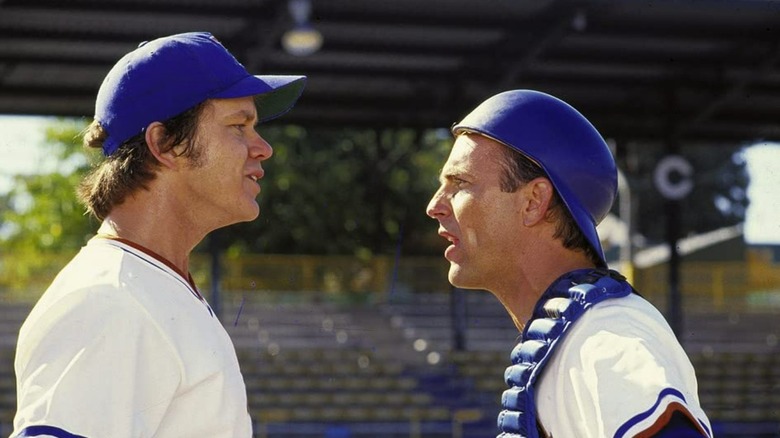
"Bull Durham" is a film so embedded in American baseball culture that its references have become threadbare, but don't let that dissuade you from enjoying its finer points. It shines a grimy, fly-speckled spotlight on the often-ignored pipeline of Major League Baseball: the minors, a culture all its own. It's a land of buses and dumpy little stadiums that stage the likes of Toilet Seat Cushion Night. That's a world well worth exploring. Alas, before long, "Bull Durham" leaves the smaller ballparks in the dust.
We're supposed to find this movie endearing and classic, as it is one of the first major Hollywood films to delve into baseball's sexual undercurrents, but the fact remains that one of the main characters, Annie, chooses a baseball player a season to adopt as her Official Student And Also Part-Time Lay, which is icky. It just is. The fact that Annie reads poetry to her yearly much-younger man and drapes it all in the rhetoric of "the Church of Baseball" does not make it any less icky. Nor does the fact that she considers herself a spiritual mentor. It is exactly as gross as it would be if a middle-aged male golf fan selected one rising LPGA standout per summer to join him on his futon with his Carl Sandburg anthology.
"Bull Durham" is most famous for Kevin Costner's "I believe in..." speech. One of the things he believes in, he announces, is his genitalia. If the film laid this gently aside in favor of the rarer and more interesting insight that sometimes dreams just don't come true, perhaps it would rank higher. Otherwise, the main characters are named Nuke and Crash, which tells you pretty much all you need to know.
Major League
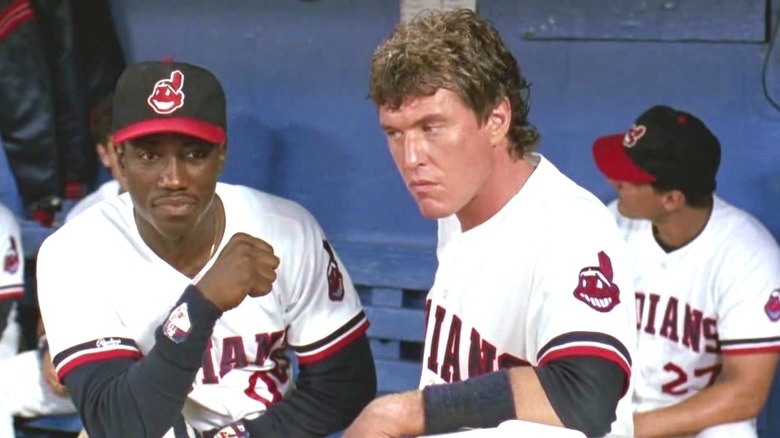
There was a time when Charlie Sheen wasn't a punchline. That time was 1989, and the place was this movie. It stars the Cleveland Indians (now the Guardians) and the team's sad and beaten fanbase, which is ... still the case. Someone needs to make a movie about that.
"Major League" is ostensibly a clichéd tale of a ragtag band of losers who defy the odds to win it all. The movie has two villains: the team's owner, Rachel Phelps, who is sabotaging the season, and the New York Yankees. The likes of "The Pride of the Yankees," along with so many other baseball-oriented films, have so firmly established the Yanks as a terrifying foe that it's a wonder that the team actually takes the trouble to show up on game days.
What endures about this film is that it doesn't exclude the long-suffering fans. It would take until 2005's "Fever Pitch" until that aspect of fandom was more fully explored (albeit as a rework of a British book about soccer). Most importantly, as writer-director David S. Ward told ESPN, the movie's Cleveland scenes were shot in Wisconsin, which is quite likely the most ironic diss in the history of baseball cinema. Even in its own movie, Cleveland gets decided shade.
A League Of Their Own
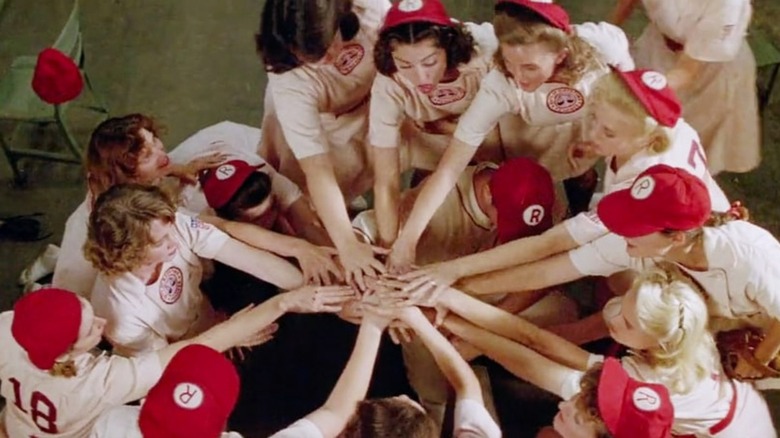
Outside of the Greatest Generation, few even knew of the existence of the All-American Girls Professional Baseball League before this film, or thought all that much about what women endured on the homefront during World War II. "A League of Their Own," which is currently slated for a TV revival on Prime Video, dragged them back into the spotlight in 1992. Its swinging Hans Zimmer soundtrack highlighted a sisterly rivalry that spanned an entire summer.
One of the film's standout scenes features the heartbreaking awkwardness of one of the players standing in front of the final rosters, unable to see if she has made any of the teams because she cannot read her own name. Touches like this, including nods to the Black and other minority women who were not invited to the party, elevate "A League of Their Own" over the usual schmaltz. That filmmakers also refused to jam a half-baked romantic subplot into the script is a tribute to the seriousness of the material.
61*
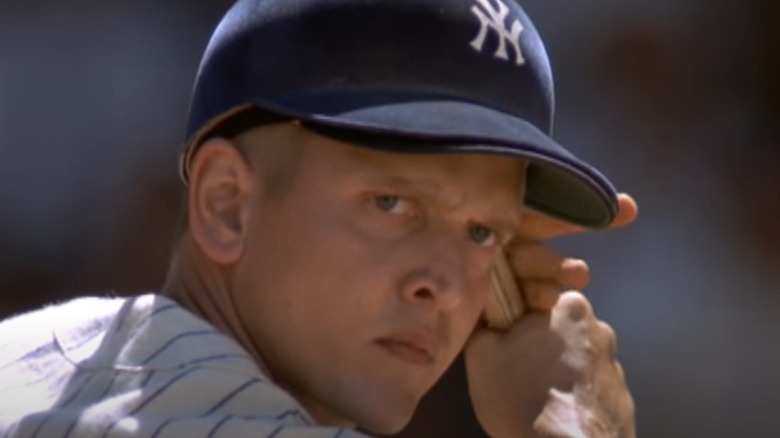
Baseball has been choking on statistics since before it was cool to choke on statistics. So, when one of those statistics has an asterisk, we're gonna talk about it, and talk about it, and talk about it until the man trying to post some new numbers suffers acute hair loss.
"61*" is about Roger Maris, but it's not really about Roger Maris. It's more of an exploration of the weight of fame and modern athletic expectations. Directed by Billy Crystal, "61*" explores Maris' 1961 attempt to break Babe Ruth's record of 60 home runs in a single season. The asterisk alludes to the fact that Maris set the record in a season of 162 games, while Ruth managed the feat in 154.
The intense stress of the season so affected Maris that his hair began to come out in clumps. Was this still a game? That the film opens in 1998 with the Maris family on hand to watch Mark McGwire break the record again is unintentionally ironic, as McGwire's later admissions of doping earned him an asterisk of his own.
Maybe it's a cursed record. Maybe it's not. Or maybe hitting a small, hard ball made of yarn and cowhide with a big stick is just really, really difficult.
Catching Hell
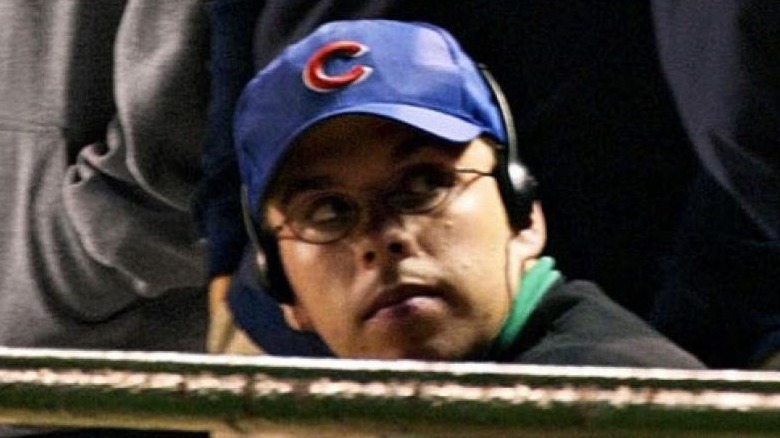
Like "61*," "Catching Hell" explores the nauseating underbelly of the majors. An installment of ESPN's "30 for 30" documentary series, this dark look at the tipping point of emotional fandom is especially relevant in the age of online pile-ons.
If you're a Cubs fan, you will not like this doc. Everybody else will enter the episode mildly disliking the Cubs for being the Cubs, then exit the other side swearing off Wrigley gum for life. An exploration of the events of Game 6 of the NLCS in 2003, "Catching Hell" details the moments surrounding the play in which Cubs fan Steve Bartman infamously reached up for a ball hit in foul territory. What happened next drove Bartman into hiding and presaged the social media phenomenon of trial by mob.
"Catching Hell" largely lets Cubs fans hang themselves ("We all knew we were gonna lose Game 7!") but it's uncomfortably easy for everyone to see him or herself in all the fist-shaking. It's just a matter of whether or not the scapegoat in question happens to be wearing your jersey — and even then, no one is safe.
Eight Men Out
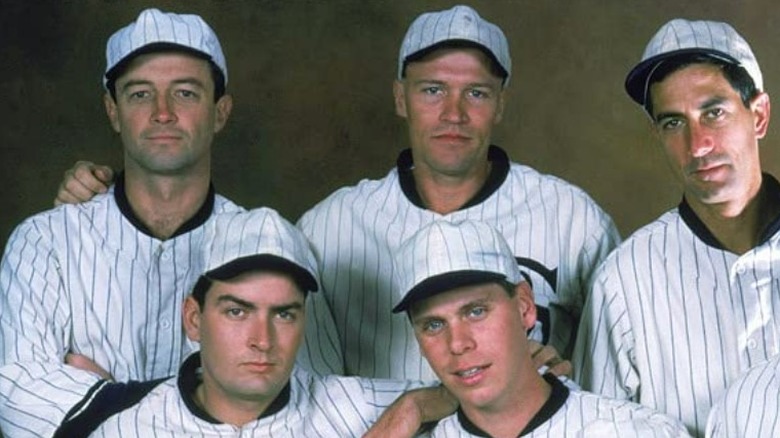
I doubt the directors put their heads together on this, but 1988's "Eight Men Out" laid the historical foundation for 1989's "Field of Dreams." "Eight Men Out" tells the tale of the 1919 World Series between the Chicago White Sox and the Cincinnati Reds. Payouts to members of the Chicago team to throw the Series resulted in the Black Sox Scandal, which got every man involved booted from the game for the rest of their lives.
It was an event on which the whole sport teetered. Were the integrity of the game placed in doubt, it would collapse. So, commissioner Kenesaw Mountain Landis immediately blacklisted the players and kept them blacklisted, a stomp-down that would reverberate once again in Cincinnati a century later, when player-manager Pete Rose was banned for life for betting on baseball. As ESPN reports, that's still kind of a sore spot.
"Eight Men Out" isn't flashy. It isn't hilarious, or iconic, or gaspingly dramatic. It tells a (mostly) true story, and solidly so. It is for this reason that films like "Eight Men Out" need to be made. They need to be made because they remind us that, no matter how much baseball might infuriate us, no matter how often we fans feel taken for granted and lectured to, the sport hinges on honor. Every inning we have is one to be cherished.
Field Of Dreams
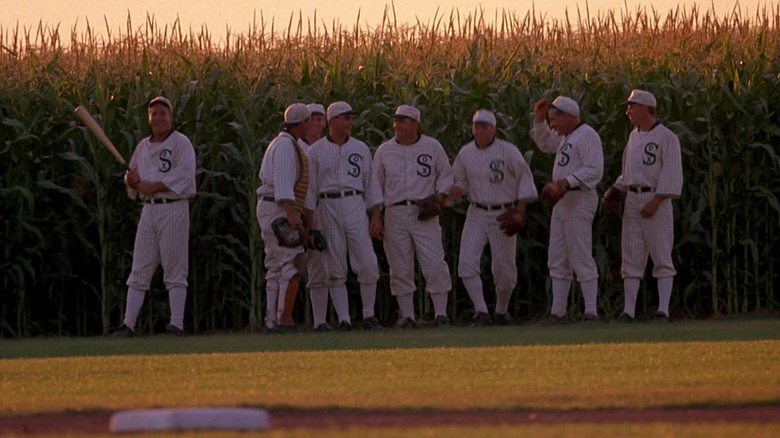
Well, the forces behind "Field of Dreams" are of the opinion that Shoeless Joe Jackson got a raw deal back in 1920 when he was bounced from baseball, and you are going to hear about it. Farmer Kevin Coster thinks the fact that Jackson, despite taking the money to tank the World Series, later reversed course and played to the best of his ability is what's important here. Pete Rose would like a word.
"Field of Dreams" explores the mystical aspects of the sport in a way that's simultaneously more obvious and less ham-handed than the attempt in "The Natural." You have time travel. You have corn. You have James Earl Jones, and Amy Madigan calling a fellow PTA parent a "Nazi cow." But, in the end, "Field of Dreams" is about the cleansing nature of childhood innocence and forgiveness. As always, baseball is at its best when it's embracing all that is good in life, not just baseball.
Watch it every year before Opening Day. Even if your team is perennially in the basement, you will rise from the couch with hope.
Moneyball
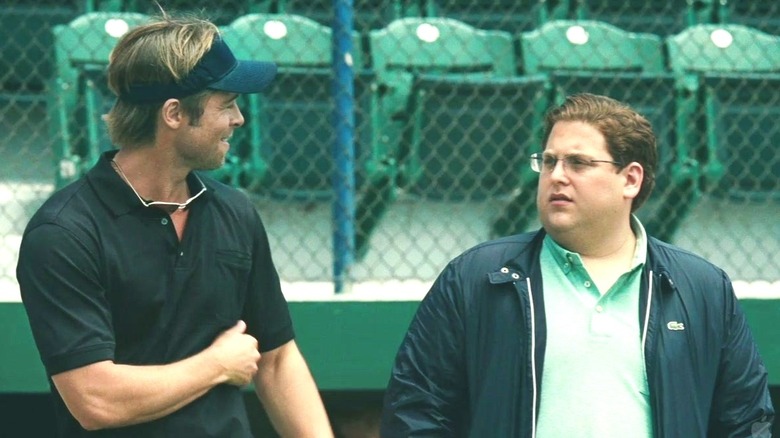
"Moneyball" brings together the cliches of every single sports movie and remixes it into an introduction to the statistical revolution of modern baseball. It balances the science of the game with nostalgia and realism. It lifts the curtain of the front office and reminds us of the realities beyond the diamond, but without leaving behind a cynical sheen.
The real story of the adoption of sabermetrics is far longer and more complex than the story told here, but what's important in the context of the movie is how drastically baseball has changed since "Field of Dreams" was released. Following the efforts of manager Billy Beane to better the fortunes of the Oakland Athletics (the film opens with a 2001 division playoff loss to those gosh darn Yankees), "Moneyball" touches on the many elements of baseball in the 21st century: the changing behavior and attitudes of professional athletes, a childlike enchantment with the game, front office machinations, and the increasing importance of statistical data in team-related decisions.
Although historically inaccurate in several ways, "Moneyball" highlights the demarcation between the gut and the laptop, and the moment baseball jumped over it. In time, it will represent the dividing line between two eras of the sport.
Read this next: The 15 Best Documentaries You Can Watch On Netflix Right Now
The post The 14 Best Baseball Movies of All Time, Ranked appeared first on /Film.
via Ecobuynow

.png)



Don't be spammer